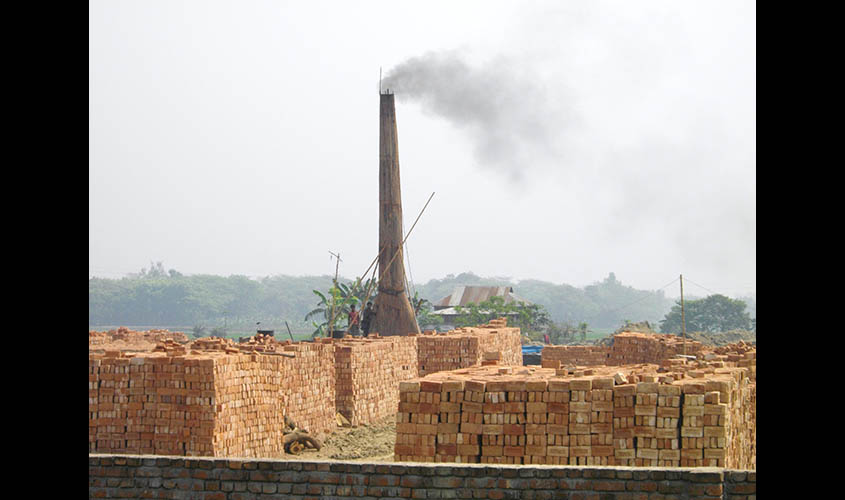‘Centre’s plan willpromote environment-friendly methods.’
NEW DELHI: The Ministry of Housing and Urban Affairs (MH&UA) is considering banning the use of bricks made in traditional coal-based kilns in its housing projects, sources have said. The implementation of the MH&UA’s proposal will promote environment-friendly methods of brick making in the country, they said.
A senior Central Public Works Department (CPWD) official told The Sunday Guardian: “MH&UA in September had directed the CPWD to examine whether the use of bricks made in traditional coal-based kilns can be banned in its construction projects. Following that, the CPWD submitted its report in November this year. In its report, the CPWD has suggested that the ban on bricks made in coal-based kilns is possible.”
“The CPWD, in its report, has suggested that there are many
At present, most of brick kilns in the country use Assam coal, Slack coal and Lignite which contain high levels of sulphur and high level of ash content (25-30%). Also, the industrialisation and use of technology is less in the brick kilns. As per an industry body led research report, industrially produced bricks in India have a market share of less than 0.1%. In contrast, in UK and US, the shares of industrialised production of bricks are 40% and 80% respectively. In the US, 80% brick kilns are fired with natural gas and bricks are being made by industrial methods.
According to the C entral Pollution Control Board’s (CPCB) estimate, India has 87,000 brick kilns clustered around the metro cities like in the Delhi-NCR region, Chennai, Kolkata, Pune, Ahmedabad, Hyderabad, Kanpur and Patna, to feed requirements generated due to a construction boom. There are around 2,000 brick kilns operating in Delhi and NCR, according to CPCB’s estimate.
As per the United States Environmental Protection Agency’s (USEPA) report, the brick industry in India is the largest user of coal after thermal power plants and the iron and steel industries. The brick industry consumes around 35 million tonnes of coal per year. The USEPA report pointed out that coal-based brick kiln accounts for approximately 15% of all black carbon emissions in the country. The USEPA report also suggested that over 60% of all brick kilns in the country may be unregistered or illegal. And policy diktats for reducing emissions do not work on most of them.
Pulikt Sharma, director of Greenways Technology, a clean energy research and advisory firm, criticised the government for not taking enough measures to regulate the brick kiln industry in the country. “So far, the government has not come up with any substantial steps which can ensure the reduction in carbon emission and pollution caused by brick kilns, but the MH&UA’s plan to reduce the use of bricks made in traditional coal-based kilns in its housing projects might change the brick making industry in the country,” said Sharma.

